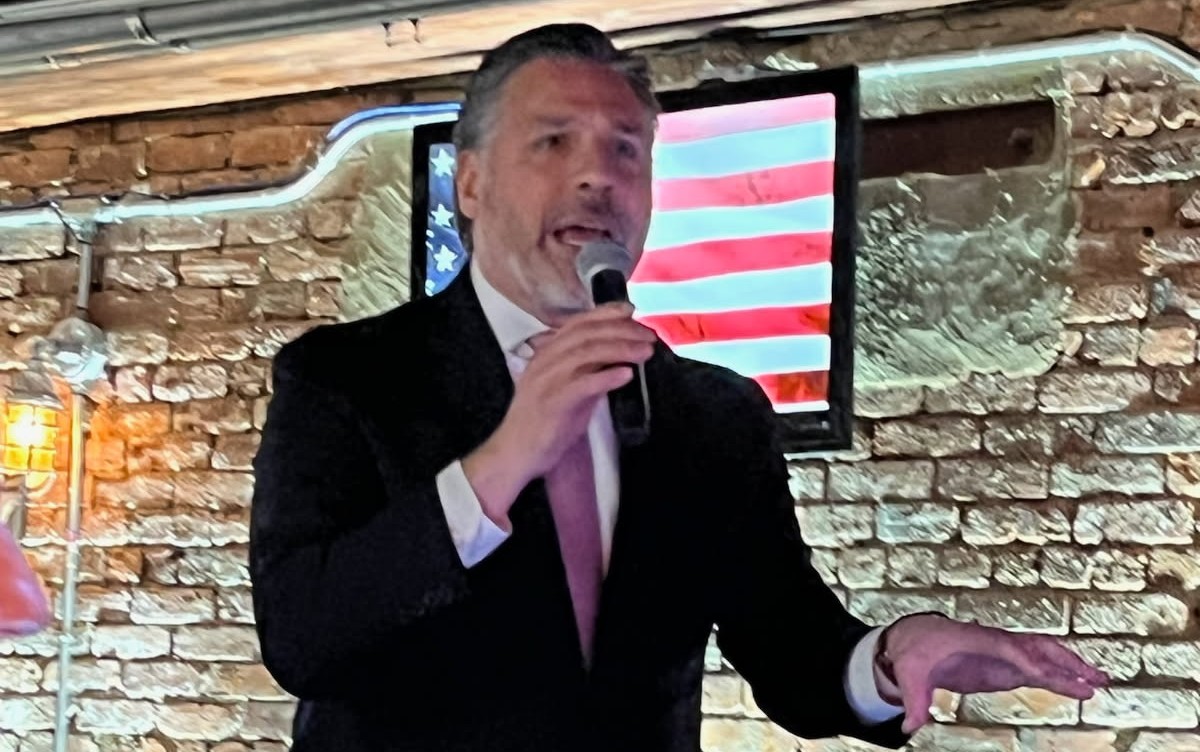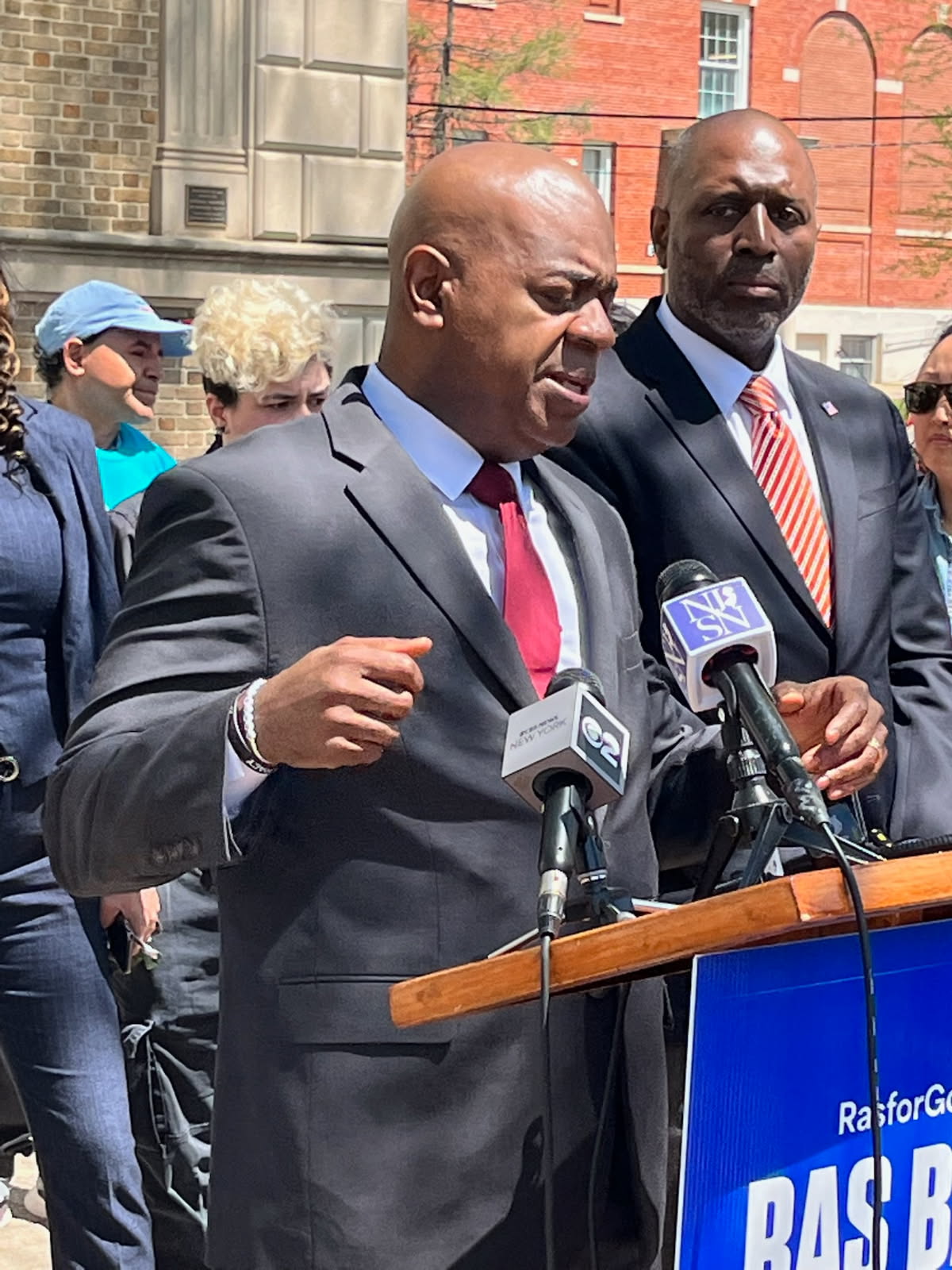
The chief executive officer of a construction company and a foreperson for the company were arrested today for their roles in a conspiracy to commit wire fraud in connection with the Newark Lead Service Line Replacement (LSLR) Program, U.S. Attorney Philip R. Sellinger announced.
Michael Sawyer, 57, of Burlington, New Jersey, and Latronia Sanders, aka “Tee,” 55, of Roselle, New Jersey, are each charged by complaint with conspiracy to commit wire fraud. They are scheduled to appear today before U.S. Magistrate Judge Michael A. Hammer in Newark federal court.
“As our complaint alleges, Michael Sawyer and Latronia Sanders worked for a company hired by the city of Newark to replace lead pipes, but instead, they intentionally left lead pipes in the ground,” U.S. Attorney Sellinger said. “By causing misleading photographs and verification forms to be submitted, Sawyer and Sanders concealed that they intentionally did not replace lead pipes and defrauded Newark by collecting payment for work they did not properly perform. Today, we begin the process of holding them accountable.”
“For years, lead pipes that transport drinking water to homes in Newark remained buried in the ground after the city hired a company to replace them,” Newark FBI Acting Special Agent in Charge Nelson I. Delgado said. “The business, along with others, were paid to replace the water service lines because any amount of lead exposure is detrimental to people’s health, particularly for children. We allege the subjects in this investigation knew they were not replacing the lead pipes, and then passed off misleading photos to conceal the ones they left in the ground. We are asking anyone who sees something or knows something they want to report to please call FBI Newark at 973-792-3000. We will hold accountable anyone who sees a payday in ripping off governmental agencies entrusted to protect the communities they serve.”
“These defendants allegedly undercut Newark’s lead service line replacement project that sought removal of all lead lines throughout the city,” Special Agent in Charge Tyler Amon with Environmental Protection Agency’s (EPA) Criminal Investigation Division in New Jersey said. “Violators who employ deception to compromise the integrity of important public drinking water related projects will be criminally investigated and held to account.”
“The EPA OIG is committed to doggedly pursuing criminal activity that targets critical water infrastructure funding,” said Special Agent in Charge Nicolas Evans of the EPA Office of Inspector General. “Taking government funds but failing to replace lead service lines defrauds the program and hurts Americans’ access to safe drinking water.”
According to documents filed in this case and statements made in court:
Beginning in 2016, high levels of lead were found in the drinking water in some of Newark’s schools. From 2017 to 2019, periodic testing of Newark’s drinking water by the U.S. Environmental Protection Agency (EPA) and the New Jersey Department of Environmental Protection (DEP) showed lead levels that were among the highest of any major city in the United States.
In March 2019, Newark announced plans to replace approximately 18,000 lead service lines within city limits as part of its LSLR Program. Newark hired an engineering firm to oversee the implementation of the program and contractors to complete the replacement work. JAS Group Enterprise Inc. (JAS) was one of the contractors hired by Newark. Prior to being hired as a contractor, JAS also worked on the LSLR Program as a subcontractor for another construction company.
Sawyer was the president and chief executive officer of JAS and responsible for overseeing and managing JAS’s operations. Sanders was employed by JAS as a foreperson of JAS crews assigned to replace lead pipes in Newark during the LSLR Program. Sawyer, Sanders, and others conspired to defraud Newark and others in connection with JAS’s performance as a contractor and as a subcontractor during the LSLR Program.
As alleged in the complaint, Sawyer, Sanders, and others intentionally failed to replace all lead pipes at certain locations as required under the terms of the relevant contracts, yet caused the submission of payment applications to Newark falsely representing that JAS completed the work in accordance with the contracts. Sawyer, Sanders, and others submitted false or misleading documents to support payment applications with respect to certain work sites. These materials included photographs that visually represented that the lead replacement was done or was unnecessary, but in fact were taken in a way to conceal that lead pipes were left in place.
At other sites where the water service lines already consisted entirely of copper pipes, Sawyer, Sanders, and others conspired to falsely represent that JAS had installed those copper pipes after removing lead pipes. Sawyer, Sanders, and others then caused the submission of fraudulent payment applications for work that JAS never completed, and induced Newark to pay JAS for work that JAS did not perform.
The charge of conspiracy to commit wire fraud is punishable by a maximum potential penalty of 20 years in prison and a fine of $250,000, twice the gross profits, or twice the gross loss suffered by the victims of the offense, whichever is greatest.
U.S. Attorney Sellinger credited special agents of the FBI, under the direction of Acting Special Agent in Charge Delgado in Newark; the EPA, Criminal Investigation Division Northeast Area Branch, under the direction of Special Agent in Charge Amon; the EPA Office of Inspector General, under the direction of Special Agent in Charge Evans, and the U.S. Department of Labor, Office of Inspector General, Northeast Region, under the direction of Special Agent in Charge Jonathan Mellone, with the investigation.
The government is represented by Assistant U.S. Attorneys Edeli Rivera, Clara Kim, and Katherine Calle of the Special Prosecutions Division in Newark.
The charge and allegations contained in the complaint are merely accusations, and the defendants are presumed innocent unless and until proven guilty.
24-366
Defense counsel:
Sawyer: Julie Grohovsky Esq., Washington, D.C.
Sanders: Catherine M. Recker Esq., Philadelphia
(Visited 88 times, 92 visits today)
Federal authorities have charged the CEO and foreman of a construction company in connection to a lead line replacement project in Newark, New Jersey. The charges include wire fraud, a serious offense that could result in significant penalties if convicted.
The construction company, which was hired by the city of Newark to replace lead water lines in residential areas, is accused of submitting false invoices and overbilling the city for work that was never completed. The CEO and foreman allegedly conspired to inflate the costs of the project and deceive city officials about the progress of the work.
Lead contamination in drinking water is a serious health concern, especially for children and pregnant women. Exposure to lead can cause a range of health problems, including developmental delays, learning disabilities, and behavioral issues. The city of Newark has been working to replace lead water lines in an effort to protect residents from this harmful toxin.
The charges against the construction company CEO and foreman highlight the importance of transparency and accountability in public projects. It is essential that contractors and subcontractors adhere to ethical standards and follow all regulations when working on projects that impact public health and safety.
The investigation into the lead line replacement project in Newark is ongoing, and federal authorities are working to hold those responsible for any wrongdoing accountable. It is crucial that all parties involved in public projects prioritize honesty and integrity to ensure that taxpayer dollars are being used efficiently and effectively.
In the meantime, residents of Newark should continue to follow guidance from local officials regarding lead contamination in their water supply. It is important to take precautions to reduce exposure to lead, such as using a water filter certified to remove lead or running cold water for several minutes before using it for drinking or cooking.
As the case against the construction company CEO and foreman unfolds, it serves as a reminder of the importance of oversight and accountability in public projects. By holding those responsible for fraudulent behavior accountable, we can help ensure that future projects are carried out with integrity and transparency.



